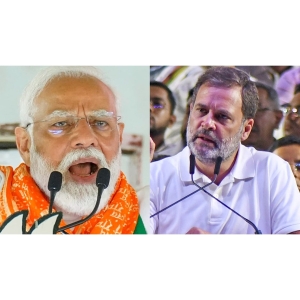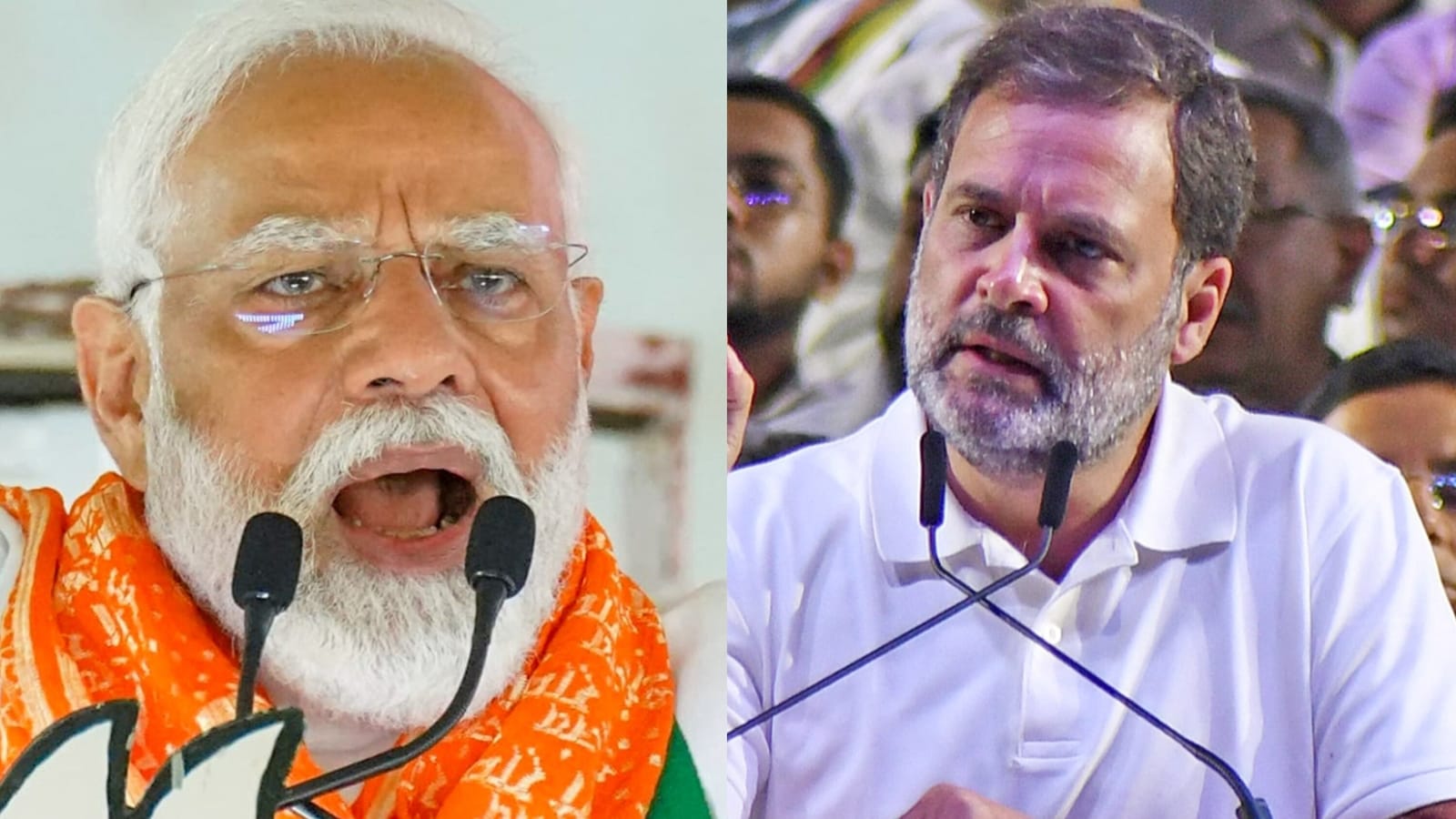
.png) Jacob Peenikaparambil
Jacob Peenikaparambil

Telling blatant lies has become very common among the political leaders in India. It is disgusting to see that the media, which is expected to function as a watchdog in a democracy, shamelessly publishes and propagates the lies of politicians. When the bulk of the print, electronic and social media has become the ruling party's mouthpiece, people have only limited options to know the truth. Free and fair elections require a level playing field for all contesting parties. The partisan role played by the bulk of the media in India alters the level playing field, adversely affecting free and fair elections.
Distortion of facts and statements also falls under the broader ambit of lies. When someone imputes meanings to a person's statements that they never intended or imagined, facts are distorted. It becomes poisonous when done with a communal tinge to create a communal divide in society.
Similarly, when only one part of the statement of a person is taken, willfully avoiding the other part, the statement gets a different or even dangerous meaning. Using only one part of a statement to target a political opponent is unethical and politically immoral.
Leaders of different political parties indulge in distorting their opponents' statements, but some are experts in distortion, and PM Narendra Modi is adept at this game. Three recent instances can be traced as examples of willful distortion, and PM Narendra Modi is the hero in these three instances.
The first instance is the use of the word "Shakti" by Rahul Gandhi in his speech at the conclusion of the Bharat Jodo Nyay Yatra in Shivaji Park, Mumbai. He said, "There is a word shakti in Hinduism. We are fighting against shakti. The question is what is that shakti. The soul of the king is in the EVM. This is true. The soul of the king in the EVM and every institution of the country, in ED, CBI and Income Tax Department. A senior leader from Maharashtra left Congress and cried in front of my mother and said, 'Sonia ji, I am ashamed that I don't have the power to fight this Shakti. I do not want to go to jail. Thousands of people have been threatened like this".
PM Narendra Modi picked up the word "Shakti" and weaponised it against the opposition parties, especially the Congress, while addressing an election rally in Tamil Nadu on March 19. "During their first rally in Mumbai, they made a statement about destroying "Shakti". Their statement has been a sheer insult to the Hindu religion, Hindu faith", Modi said. He also added, "The INDIA alliance of the DMK and the Congress do not insult any other religion. It does not utter a single word against any other religion. However, when it comes to the Hindu religion, they don't leave any chance to abuse and insult it". This is an apt example of malicious and poisonous distortion of a person's statement.
However, later, Rahul Gandhi clarified what his usage of Shakti meant. In fact, there was no need for clarification. Any person with ordinary common sense can easily understand what Rahul Gandhi meant by his statement.
The second example is Rahul Gandhi's statement at the opposition rally in Ramlila Maidan on March 31, 2024. While addressing the rally, Rahul Gandhi said, "If the BJP wins these fixed elections and changes the constitution, the country will be on fire." He also said, "The ruling party cannot secure more than 180 seats without EVMs, match-fixing, social media manipulation, and pressurising the press."
The emphasis of Rahul Gandhi was on 'fixed elections' and 'change the constitution". However, in his attack on Rahul Gandhi and the opposition, Modi Ji left out the most essential part of the statement and weaponised the second part. While addressing a rally in Uttarakhand on April 2, he said, "The shahzada [prince] of the Congress shahi [royal] family has given a clarion call that if the country chooses the BJP for the third time, the country will be set on fire. They have been out of power for 10 years after ruling 70 years in the country and are speaking of setting the country on fire! Do you approve of this? Will you allow the country to be set on fire?"
While commenting on the statement of Rahul Gandhi, academician Apoorvanand wrote in The Wire on April 2, "Why Rahul Gandhi asking tough questions is a patriotic act?" Referring to a series of attacks, murder, hate speech, violence, arrest and incarceration of Muslims in India, he asked, "Is not India already on fire?" Is his framing of the threat that another term for the BJP will be apocalyptic when he expresses his fear that if the BJP wins the election, it will change the constitution, which will tear the country apart?
The third distortion is the prime minister's response to the election manifesto of the Congress Party. It is really shocking how PM Modi could see the thoughts of the Muslim League in the Congress Party manifesto. According to PM Modi, the manifesto released by Congress reflects the same thinking prevalent in the Muslim League during the freedom struggles. "The Congress manifesto completely bears the imprint of the Muslim league and the little remaining part, it is dominated by the leftists. Congress is not visible in this", said PM Modi.
The Congress released its manifesto, Nyay Patra, on April 5. A glance at the manifesto shows that it contains ideas and proposals shared by Rahul Gandhi and Congress during the two yatras led by Rahul Gandhi. They are also in tune with the Congress party's original ideology. The party made a slew of promises, like reversing all anti-people laws passed by the BJP, an investigation into the Electoral Bonds, PM CARES Fund, reckless sale of public goods, and defence deals.
The party also has promised to put down hate speeches, hate crimes, and communal conflicts, immediately stop extra-judicial and illegal measures such as mob lynching, encounter killings and bulldozer justice, and promised to review all laws that interfere with the right to privacy. The manifesto promised that the party would not interfere with personal choices like food, dress, or the right to marry. It has rejected the concept of "one nation, one election".
The party manifesto has focused on five "pillars of justice" and 25 guarantees under them. The guarantees included introducing a law on minimum support price for farmers and Rs 1 lakh to women heads of poor families a year. It has promised many employment opportunities by filling 3 million vacancies in government jobs and creating another 15 million in the mining sector by doubling its share to 5 per cent of gross domestic product (GDP).
Another significant promise is to give youth the right to an apprenticeship, reform the production-linked incentive (PLI) scheme, introduce the employment-linked incentive (ELI) scheme, launch an urban employment programme for the poor, increase the share of manufacturing to 20 per cent of GDP, and double the economy within 10 years.
"A progressive, empathetic and, above all, compassionate vision for India is what is needed. The Congress manifesto hits the right notes", wrote Sarim Naved in an article titled, "Congress Party Manifesto Draws a Roadmap to an India Free from Fear", in The Wire on April 8, 2024. Only a biased person can find something divisive in the manifesto of Congress. The PM and the ruling party members have the freedom to criticise the manifesto of Congress and expose its pitfalls. It is needed to educate the electorate during the election. However, imputing communal overtones in Congress's manifesto is unacceptable and a gross violation of the Moral Code of Conduct. The Election Commission has to take suo motu action against those who indulge in such nefarious action.
The PM and his party leaders are becoming more and more aggressive and violent in their speeches as the dates of the elections are very close. They have nothing other than divisive and communal rhetoric to present before the people of India. Virulent nationalism, poisonous communalism and hateful and divisive majoritarianism, along with a slew of welfare schemes, have been the hallmarks of the narrative presented by the BJP and PM Modi since 2014. This narrative has reaped its maximum benefits in terms of electoral dividends for the BJP, especially in the Hindi heartland. Still, PM Modi and his party leaders are harping on these communal and divisive issues with increased anger.
Branding all opposition party leaders corrupt will not be acceptable to the people of India because they have seen how the leaders who were accused of corruption by the BJP government and its investigation agencies were embraced by the BJP on the eve of the elections. According to a report published in the Indian Express on April 2, out of 25 opposition leaders who joined the BJP or aligned with it since 2014, 23 got a reprieve in the cases filed against them by the investigation agencies. They include 10 from the Congress, four from the NCP and the Shiv Sena, three from the Trinamool Congress, two from TDP and one from the Samajwadi Party and YSRCP.
The details of electoral bonds reveal that the BJP received enormous contributions from the companies raided by the investigation agencies. That is why Rahul Gandhi has characterised the Enforcement Directorate as an "Extortion Directorate." In light of these revelations, the BJP has no moral right to accuse opposition political party leaders of corruption.
According to Shravan Garg, a renowned journalist and political analyst, fear is the main reason the PM and the BJP became angry because people are coming out of their fear and asking questions. The assertion by the Supreme Court, as reflected in some recent judgements, and Rahul Gandhi's two yatras are the causes of liberating people from fear, and they have frightened PM Modi and his party.
The forthcoming election is an opportunity for the people of India to tell political leaders that they cannot be kept under fear or drugged by religion and corrosive nationalism for a long time.